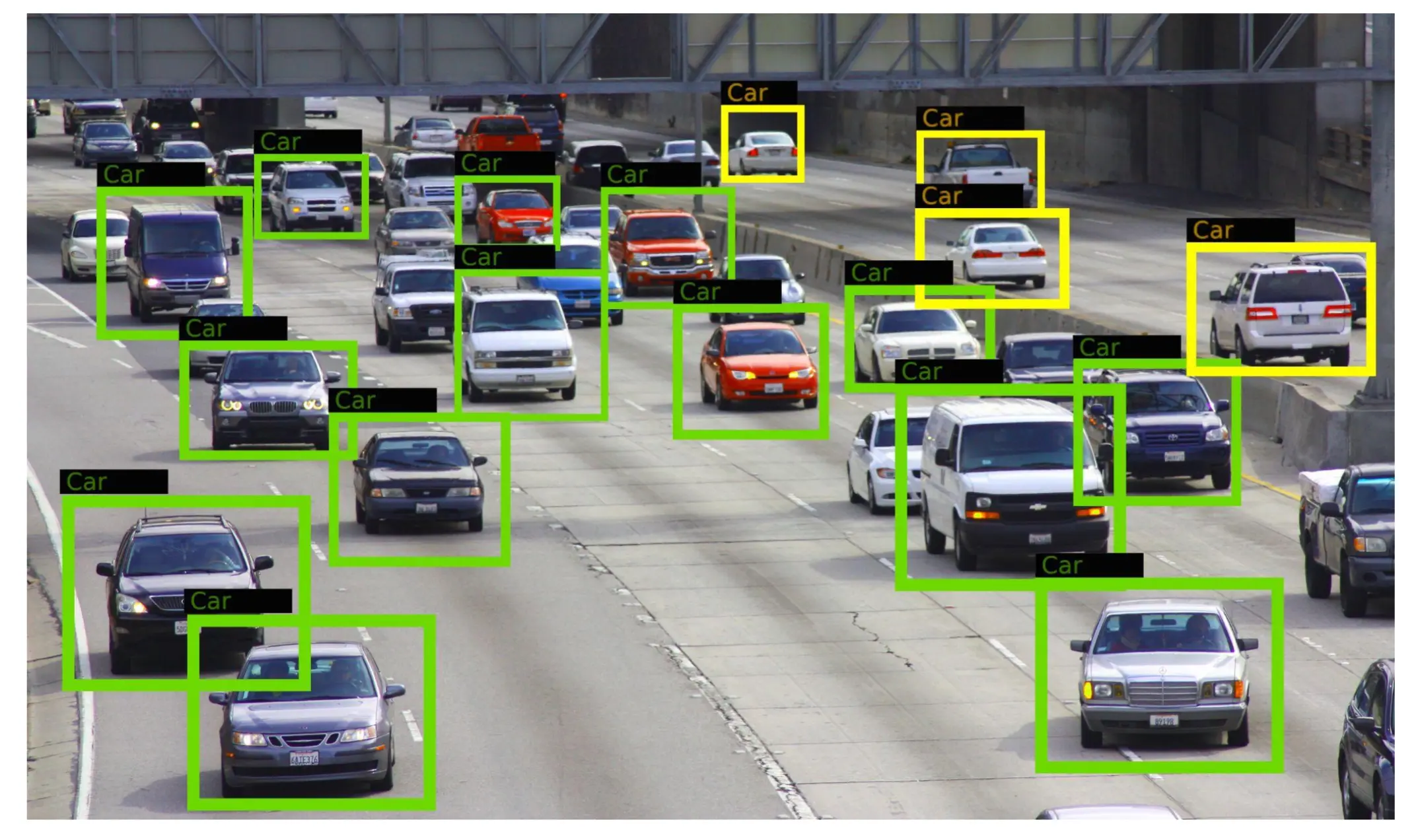- Publication: Axios
- Publication Date: 2023
- Organizations mentioned: Microsoft, Google, Anthropic, Inflection, Amazon
- Publication Authors: Axios Pro newsroom
- Technical background required: Medium
- Estimated read time (original text): 10 minutes
- Sentiment score: 50%, neutral (100% being most positive)
TLDR
The Axios Pro: Policy report aims to provide lawmakers, associations, and multinational corporations with an in-depth analysis of the current landscape of Artificial Intelligence (AI) in the United States. With the rapid proliferation of AI following the launch of ChatGPT in late 2022, there’s a pressing need to understand how AI will impact businesses, jobs, and society. The report delves into the actions of Congress, the White House, and tech companies as they navigate the development of policies to govern AI’s use.
Methodology:
- The Axios Pro team conducted comprehensive research on AI’s influence across various sectors.
- They analyzed the legislative efforts of policymakers and tech companies’ positions on AI regulation.
- The report includes insights from key players and stakeholders involved in shaping AI policy.
Key Findings:
- AI’s Impact: AI is rapidly changing work dynamics and political campaigns, leading to concerns about its potential threats and the need for regulation to protect the public without hindering innovation.
- Legislative Challenges: Policymakers admit their limited understanding of AI and are in the early stages of crafting AI-related legislation. They are seeking expert testimony and developing regulatory frameworks.
- Self-Regulation and Oversight: While some tech companies have pledged to self-regulate, there is skepticism about the effectiveness of voluntary commitments. Critics argue for more stringent protections.
- National Security Concerns: AI legislation is heavily influenced by national security, with proposals to protect against the use of AI in anti-democratic activities and the development of autonomous weapons.
- Legal Immunity Debate: There is an ongoing discussion about whether AI-generated works should be eligible for legal immunity similar to that enjoyed by social media companies.
- Bipartisan Interest: AI regulation is a rare area where there is bipartisan agreement on the need for government involvement, although there’s much to learn before significant legislation can be enacted.
Recommendations:
- Educational Efforts: Members of Congress are encouraged to participate in educational forums to better understand AI technology.
- Self-Regulation with Oversight: Tech companies should continue self-regulatory practices while the government considers additional measures to ensure public safety.
- Precision Regulation: The government should adopt a targeted regulatory approach that addresses specific AI use cases rather than broad, top-down rules.
- Stakeholder Engagement: Lawmakers are urged to engage with AI experts, tech companies, and other stakeholders to shape informed AI policies.
- Balanced Approach: Any regulatory framework should balance the need to protect the public with the need to foster innovation and maintain the U.S.’s technological leadership.
Goal: The IBM Institute for Business Value aims to guide CEOs through the rapidly evolving landscape of generative AI, particularly in the realm of customer service. This report underscores the transformative role of generative AI in customer interactions and its emergence as a top priority for CEOs, who are reevaluating their strategies to harness this technology effectively.
Thinking Critically
Implications:
- The integration of AI into various sectors, as the report suggests, could lead to significant changes in the workforce, potentially automating many jobs and changing the nature of work. This may result in economic shifts and require substantial investments in retraining and education programs to prepare the workforce for new types of employment. If organizations fail to adopt the report’s recommendations, they risk falling behind in innovation and competitiveness, potentially leading to economic stagnation or decline.
- The report’s emphasis on the need for AI legislation and regulation could lead to the establishment of new legal frameworks that balance innovation with ethical considerations and public safety. Successful implementation of such laws could set a global standard and potentially stimulate international cooperation in AI governance. Conversely, failure to act could result in a regulatory vacuum, with increased risks of misuse, privacy violations, and security threats.
- As AI technologies continue to evolve, the report indicates that national security is a major concern, with implications for both economic competitiveness and military capabilities. Policymakers must navigate the delicate balance between fostering technological advancement and protecting against the proliferation of AI-enabled threats, such as autonomous weapons or large-scale disinformation campaigns. The global dynamics of AI development could shift power balances and necessitate new alliances and strategies.
Alternative Perspectives:
- Critics may argue that the report’s call for regulation could stifle innovation by imposing burdensome compliance costs on AI companies, especially smaller startups that lack the resources of tech giants. This could inadvertently consolidate power among a few large corporations that can afford to navigate complex regulatory landscapes, potentially hindering diversity and innovation in the AI field.
- Some may question the report’s assumption that AI poses significant threats requiring immediate legislative action. They might suggest that the technology is still in its infancy and that premature regulation could be based on speculative fears rather than evidence-based risks, potentially leading to overregulation that could hamper beneficial AI applications.
- The report’s focus on AI’s potential for job displacement may be seen as overly pessimistic by those who believe that AI will create as many jobs as it displaces, if not more. They might argue for a more balanced view that recognizes AI’s potential to augment human capabilities and drive new forms of economic growth and job creation.
AI Predictions:
- Based on the report’s findings, it is predicted that within the next few years, there will be a significant increase in AI-related legislation, with a focus on data privacy, transparency, and accountability. This will likely lead to the establishment of new government bodies or the expansion of existing ones to oversee AI development and deployment.
- It is anticipated that the debate over AI regulation will intensify, with major tech companies actively participating in shaping policy. These companies may form coalitions to influence legislation in a way that aligns with their interests, potentially leading to industry-wide standards and practices for responsible AI use.
- As national security emerges as a key legislative concern, there will likely be an increased focus on the development of AI for defense applications. This could result in greater investment in AI research by the government and the establishment of partnerships between the public and private sectors to ensure technological superiority in AI capabilities.
Implications:
- Adoption of Generative AI in Customer Service Could Transform Business Models: If organizations universally adopted generative AI in customer service, we could see a significant transformation in how businesses interact with their customers. This shift could lead to enhanced customer experiences, with faster, more personalized responses, thereby increasing customer satisfaction and loyalty. Moreover, the role of human customer service agents could evolve, focusing on more complex and nuanced tasks that require a human touch, potentially leading to job redesign and new skill requirements.
- Strategic Investment in AI Could Lead to Competitive Advantage: Companies that strategically invest in generative AI for customer service could gain a competitive edge over those that do not. By prioritizing use cases that improve both the agent and customer experience, these companies could see increased efficiency and potentially higher revenues. However, this could also widen the gap between market leaders and laggards, possibly leading to market consolidation in certain industries.
- Broader Economic and Social Implications of AI Interactions: As generative AI becomes more prevalent in customer interactions, there could be broader economic and social implications. For instance, there might be changes in consumer behavior, with customers increasingly expecting instant and sophisticated interactions. Additionally, there could be debates about data privacy, AI ethics, and the need for regulation as AI begins to handle more sensitive customer interactions.
Glossary
- Axios Pro: Policy: A service by Axios that provides lawmakers, associations, and multinational corporations with critical policy updates every single day.
- CREATE AI Act: Legislation introduced to expand access to AI tools and resources for researchers and students.
- Section 230 of the Communications Decency Act: A U.S. law that provides immunity to online platforms from liability for user-generated content; some lawmakers are considering whether to exclude AI-generated works from this immunity.
- Bipartisan AI committee: A committee set up by Senate Majority Leader Chuck Schumer to study AI and inform legislative frameworks.
- Congressional Artificial Intelligence Caucus: A caucus co-chaired by Reps. Anna Eshoo and Michael McCaul, focusing on AI-related issues and legislation.
- Self-aware AI: The hypothetical concept of AI systems that have consciousness or self-awareness.
- AI accountability: The principle that those who develop and deploy AI systems should be responsible for the outcomes of those systems.
- Autonomous weapons: Weapons systems that can select and engage targets without human intervention, raising ethical and security concerns.
- Deepfake political advertisements: Manipulated videos or audio recordings that can be used to spread misinformation or interfere in political processes.
- Self-regulation: The practice of AI companies setting and following their own rules to ensure the ethical use of AI, without external enforcement.
- AI regulatory agency: A proposed federal agency that would oversee the registration and licensing of large AI models to ensure accountability and safety.
- Hub-and-spoke model: A regulatory approach that distributes oversight authority across different government agencies, rather than centralizing it in one entity.
- Precision regulation: The idea that regulation of AI should be tailored to individual use cases rather than applying broad, one-size-fits-all rules.


 Join hosts Anthony, Shane, and Francesca for essential insights on AI's impact on jobs, careers, and business. Stay ahead of the curve – listen now!
Join hosts Anthony, Shane, and Francesca for essential insights on AI's impact on jobs, careers, and business. Stay ahead of the curve – listen now!


